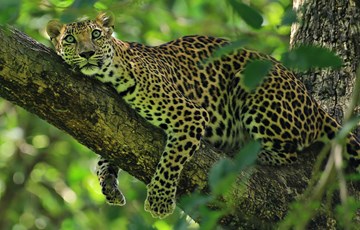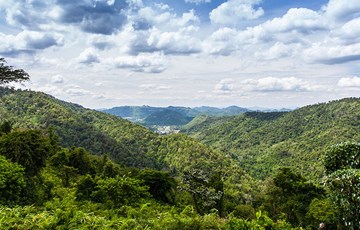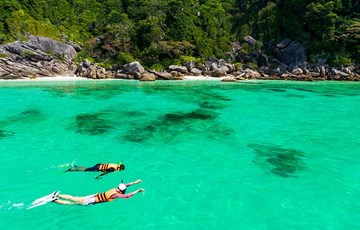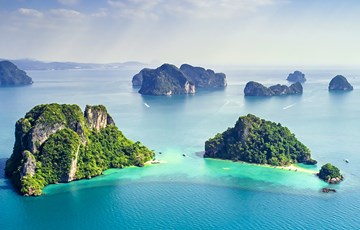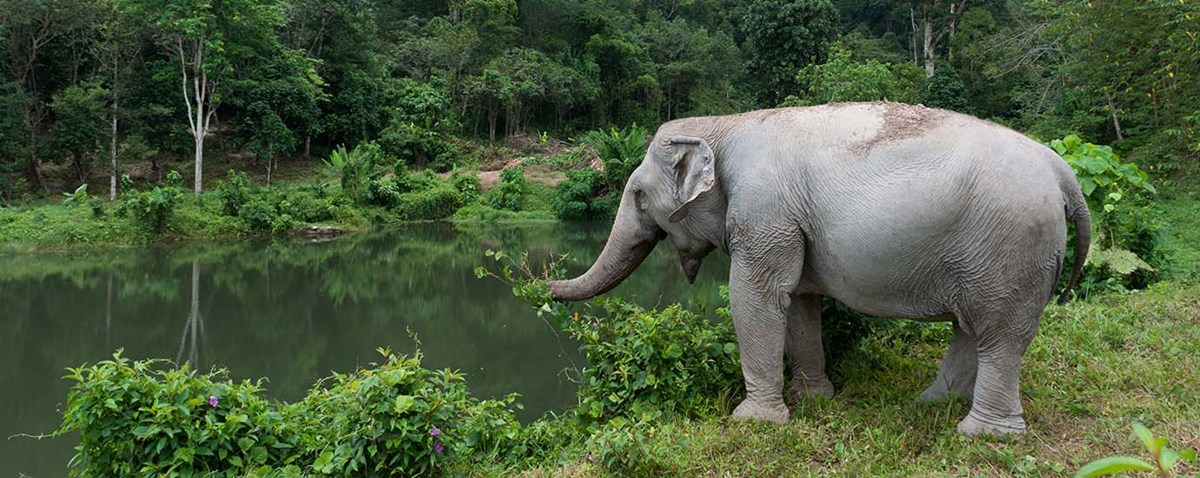
13 ethical elephant sanctuaries in Thailand
Seeking an authentic elephant experience? Look no further than these responsible elephant sanctuaries that offer a natural and ethical way to see these incredible gentle giants...
1. Elephant Nature Park

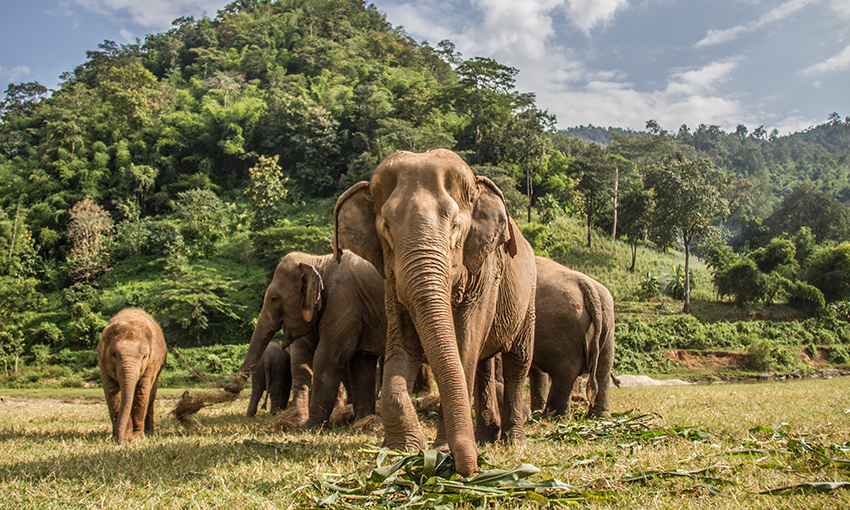
Elephants at Elephant Nature Park (Shutterstock)
Elephant Nature Park is one of the best-known elephant conservation projects in Thailand. Set on the edge of a rainforest near Chiang Mai, in Thailand’s north, the sanctuary was founded by award-winning conservationist Lek Chailert in 1995. More than 75 elephants roam free here and each has a heart-breaking story: many have been saved from torturous camps that exploit elephants for tourism or logging purposes or other abusive situations.
The refuge is also home to a ragtag menagerie of adopted cats, dogs, horses, warthogs, water buffalo and other animals. There are a few different ways to visit Elephant Nature Park, with both single day or overnight stays available. Volunteers help prepare fruit and vegetables for the elephants and food for the other animals, or you can stay overnight to spend more time with these gorgeous creatures. Longer volunteer placements are also available here and must be booked well in advance.
2. The Surin Project
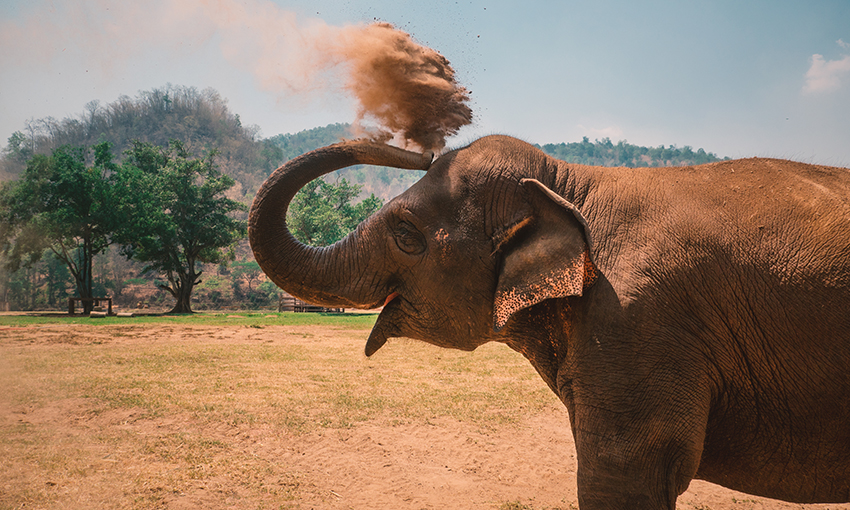
An elephant playing in the sand (Shutterstock)
One of the main issues around elephant abuse in Thailand is that the traditional trainers – mahouts – find it hard to make a living so feel forced to turn to unsustainable tourism for income. The Surin Project in Baan Tha Klang, northeast Thailand, works to reduce that problem, taking in the mahouts and their elephants to keep them off the streets.
Nearly 200 mahouts and elephants live in the centre; the mahouts are given employment and the elephants are free from chains to roam on forested land. Volunteers are essential to the project’s survival. A one-week minimum volunteering stint is required, giving you plenty of time to get to know the culture of the mahouts and this valuable work.
3. Boon Lott’s Elephant Sanctuary

Boon Lott’s Elephant Sanctuary (BLES) is a small, intimate affair in Sukhothai. The rescued elephants roam freely over 600 acres of forested land of banana plantation, grasslands, fresh-water rivers and open fields. Founded by animal-loving Brit Katherine Cooper who left a successful career in the UK, the sanctuary also features a cat and dog home on the grounds.
With just three guesthouses, visitor numbers are kept intentionally low to ensure the wellbeing and quality of life for the small herd of rescued elephants who live here. Most people stay at BLES for a handful of nights, spending their days watching elephants on the grazing grounds and taking a swim in the river, or getting to know the village mahouts. This peaceful sanctuary is in the north of Thailand, near Sukhothai Airport, and places book up quickly so reserve well in advance.
4. Friends of the Asian Elephant Hospital

See elephants ethically in Thailand (TAT)
As one of the only elephant hospitals in the world, the Friends of the Asian Elephant (FAE) Hospital is a special elephant experience in Thailand. The centre is one of very few of its kind and is located in Thailand’s northwest and is dedicated to treating and rehabilitating sick elephants. Its mobile vet clinic treats sick, weak and injured elephants all over the country.
Visitors are welcome at the hospital, and here you can learn about how these professionals take care of injured and disabled elephants and treat their injuries. Seeing the vulnerable elephants being treated is quite a leap from seeing the treatment of small domesticated animals, making this a fascinating stop-off. This donation-based hospital has treated over 5,000 elephants since 1993 and truly needs visitors and volunteers to help ensure its future. Volunteer activities include preparing food for the elephants and cleaning their areas.
5. Elephant Haven
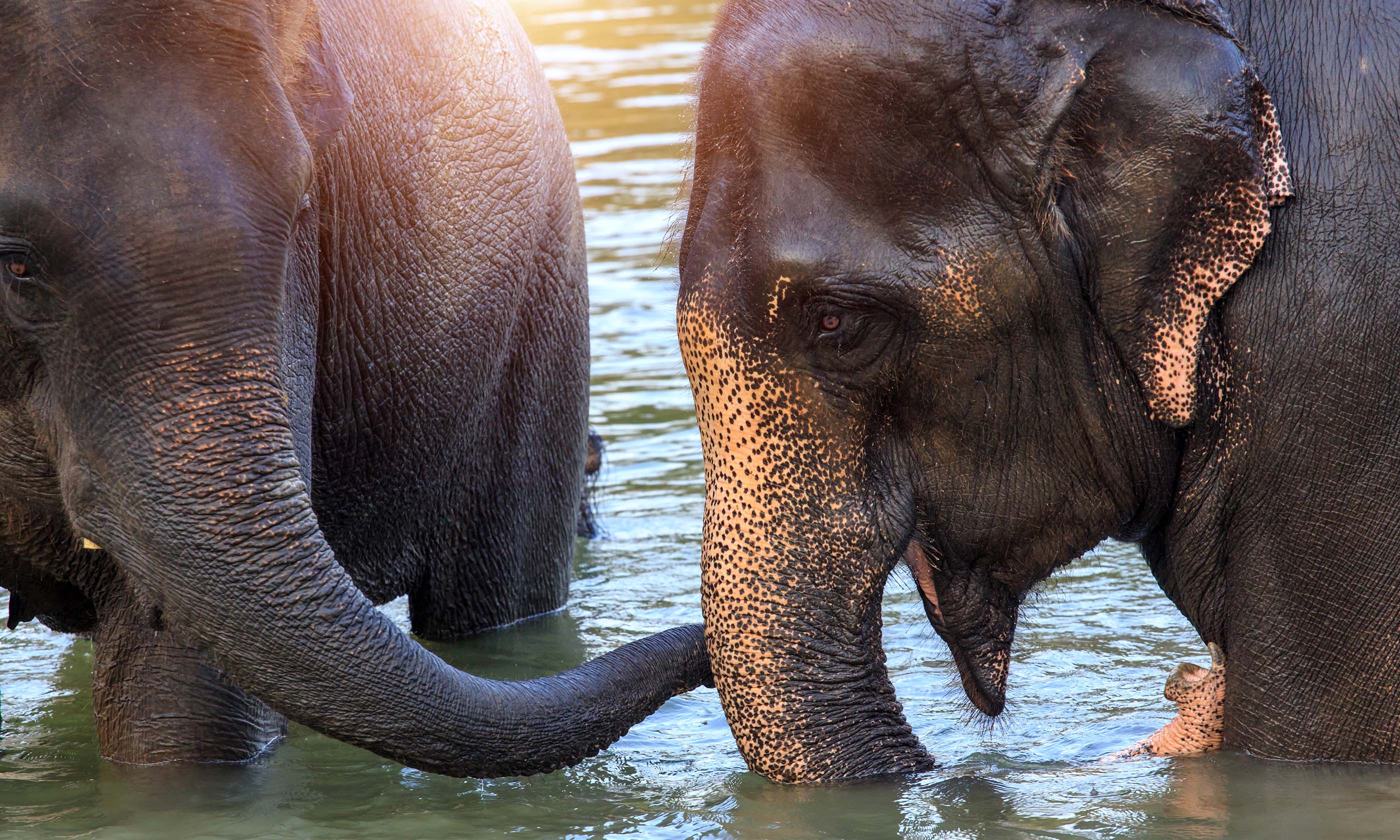
Elephants bathing in Kanchanaburi (Shutterstock)
Formerly known as Sai Yoke Elephant Camp, the newly-named Elephant Haven in Kanchanaburi is one of the most exciting elephant projects in Thailand. The name alteration came around as this place used to be the kind that kept elephants in chains, but the camp has changed its ways. Now, the elephants here have freedom to roam and socialise, without hooks or being put on show – a giant leap for elephants in Thailand.
This is just one of a handful of camps that are making changes in conjunction with Elephant Nature Park near Chiang Mai. In this beautiful setting, you can visit just for a single day or stay overnight and wander with the elephants, walking with them through the jungle beside them, instead of on their backs. There are also one-week volunteering opportunities. Activities include helping to prepare fresh fruit and rice-and-millet ball treats for the elephants and jungle walks, along with feeding and caring for the sanctuary’s resident cats, dogs, horses, buffalos, goats, birds and many other rescued animals.
6. Burm and Emily’s Elephant Sanctuary
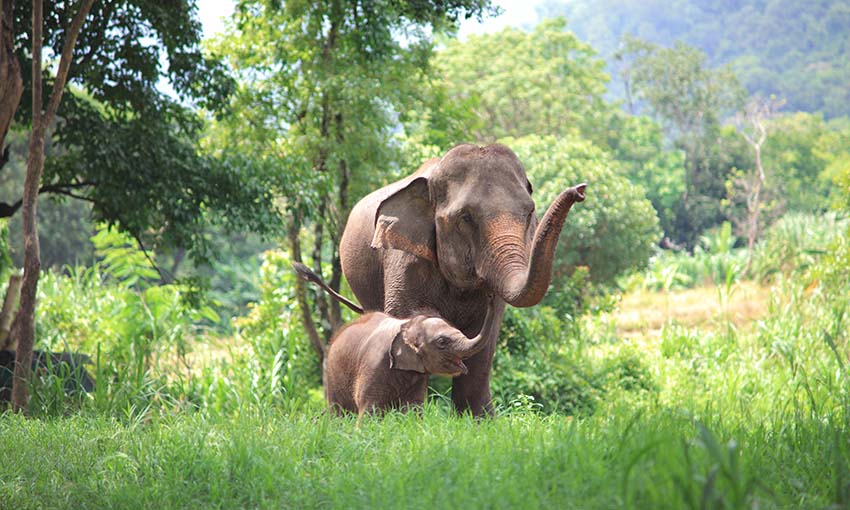
A mother and her calf enjoying Thailand's greenery (Shutterstock)
A place for old, injured or retired elephants, Burm and Emily’s Elephant Sanctuary (BEES) offers refuge to those elephants that have gone through years of logging or tourist trekking. The organisation is based around a two hour drive south of Chiang Mai, in a valley surrounded by dense greenery and beautiful mountains – just the kind of place where elephants should spend their golden years.
The volunteer programs at BEES run from Monday to Sunday. The sanctuary focuses on letting the elephants be, and helping out in the overall taking care of the elephants. Activities you can expect to get involved with here include preparing afternoon fruit treats and cutting grass and corn for the elephants, cleaning their areas and helping to care for other resident animals at BEES as well as the rescued cats at the onsite cat cafe. Depending on the sanctuary’s needs, you can get stuck in with a few other things here too, such as cooking classes, joining a weaving club in the local village or tree planting and conservation work.
7. Elephants World
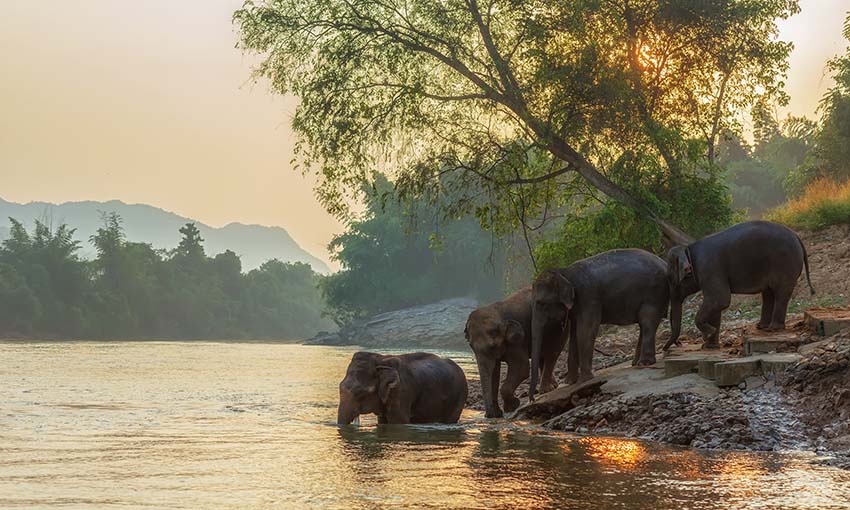 An elephant enjoying a paddle at Elephants World (Shutterstock)
An elephant enjoying a paddle at Elephants World (Shutterstock)
Elephants World in Kanchanaburi provides a haven for rescued and injured elephants with plenty of space to roam and relax in a lush setting on the banks of the River Kwai. Founded in 2008 by a Thai veterinarian Dr Samart and his wife Khun Fon, the sanctuary is also a self-sustaining farm providing care for the elephants as well as work and home for 130 staff including mahouts. The refuge started with three elephants and now has 25 animals rescued from logging camps, trekking camps and city begging, operating under the heartfelt ethos: “We should work for the elephants, and the elephants not for us”. Interaction with the animals is respectfully limited. Visitors can watch the elephants foraging, bathing and socialising. You can visit them for the day, stay overnight or volunteer for a week.
8. Samui Elephant Sanctuary
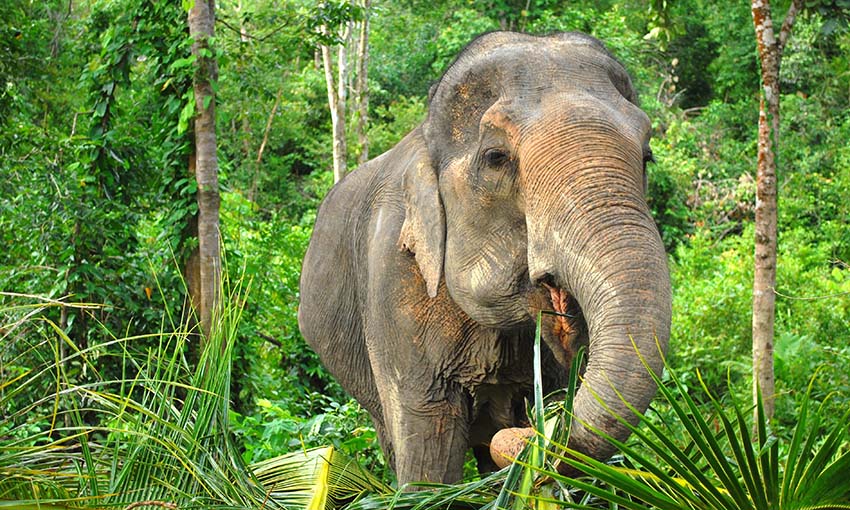
An Asian elephant in Thailand's greenery (Shutterstock)
A dozen rescued elephants call these 10 acres of forest at Samui Elephant Sanctuary home. One of the first ethical sanctuaries on Koh Samui, it provides a safe haven for elephants who have previously been overworked or mistreated in the logging and tourist trekking camps. Inspired and supported by the world-renowned Elephant Nature Park in Chiang Mai, the Samui Elephant Sanctuary is the perfect place to watch happy and well-treated elephants in their natural habitats. Visitors are only allowed to walk with and observe the elephants as they forage, socialise, play in their custom-built pool and mud pit, and relish in the freedom and nurturing care they have at their sanctuary home.
9. Wildlife Friends Foundation
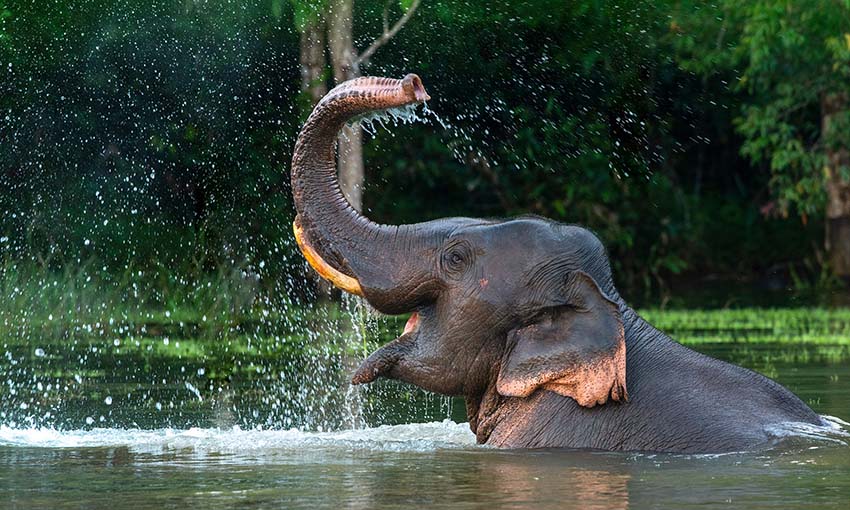 An elephant enjoying a bath (Shutterstock)
An elephant enjoying a bath (Shutterstock)
Wildlife Friends Foundation at Phetchaburi, about three hours away from Bangkok is not only home to elephants, but big cats, bears, primates, deer, birds and all sorts of other creatures. Wildlife Friends sanctuary and wildlife hospital rescues, rehabilitates and shelters all kinds of animals from abuse. Most of the 600-plus animals have been saved from horrible conditions or were abandoned after becoming unwanted pets. About 40% of the animals are released back into the wild in protected national parks, aside from the elephants, who came from trekking camps and can never be released because they spent too many years around humans and learned to rely on them too much.
The sanctuary offers full or half-day excursions at the elephant refuge and wildlife rescue centre to see hundreds of animals living happily in a natural environment. As an Elephant Refuge volunteer, you will help to prepare the food for over 20 elephants, clean their enclosures, create enrichments, harvest banana trees and grasses and a variety of other maintenance work around the centre.
10. Phuket Elephant Sanctuary
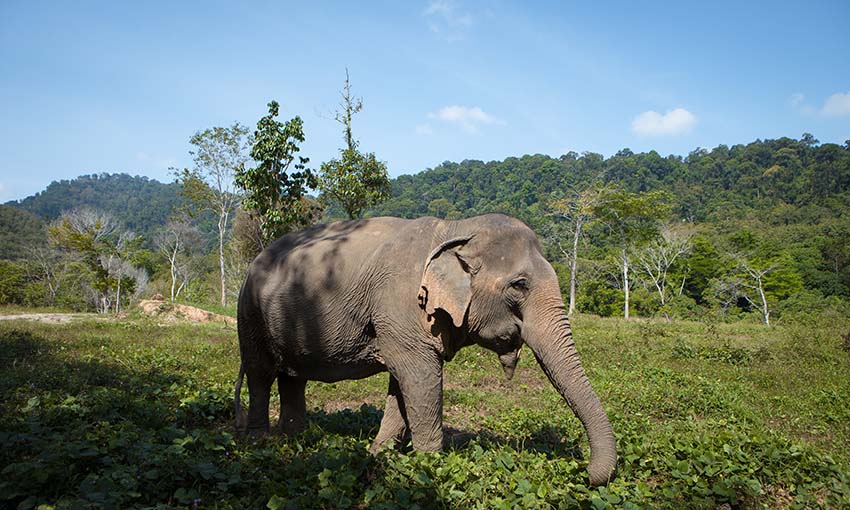 An elephant at Phuket Elephant Sanctuary (Shutterstock)
An elephant at Phuket Elephant Sanctuary (Shutterstock)
Phuket Elephant Sanctuary shelters sick, old and overworked elephants after decades of abuse in the tourism and logging industries. Another sister project by Save the Elephant Foundation, the sanctuary is leading the way when it comes to the ethical treatment and rehabilitation of retired and rescued elephants. Set against the picturesque jungle bordering Khao Phra Thaeo National Park, a herd of elephants, between the ages of 36 to 70, romp freely across lush pastures. Visitors can observe them from a treetop observation deck as they graze or splash in the fresh water lagoons and hydrotherapy mud pools.
11. Elephant Hills
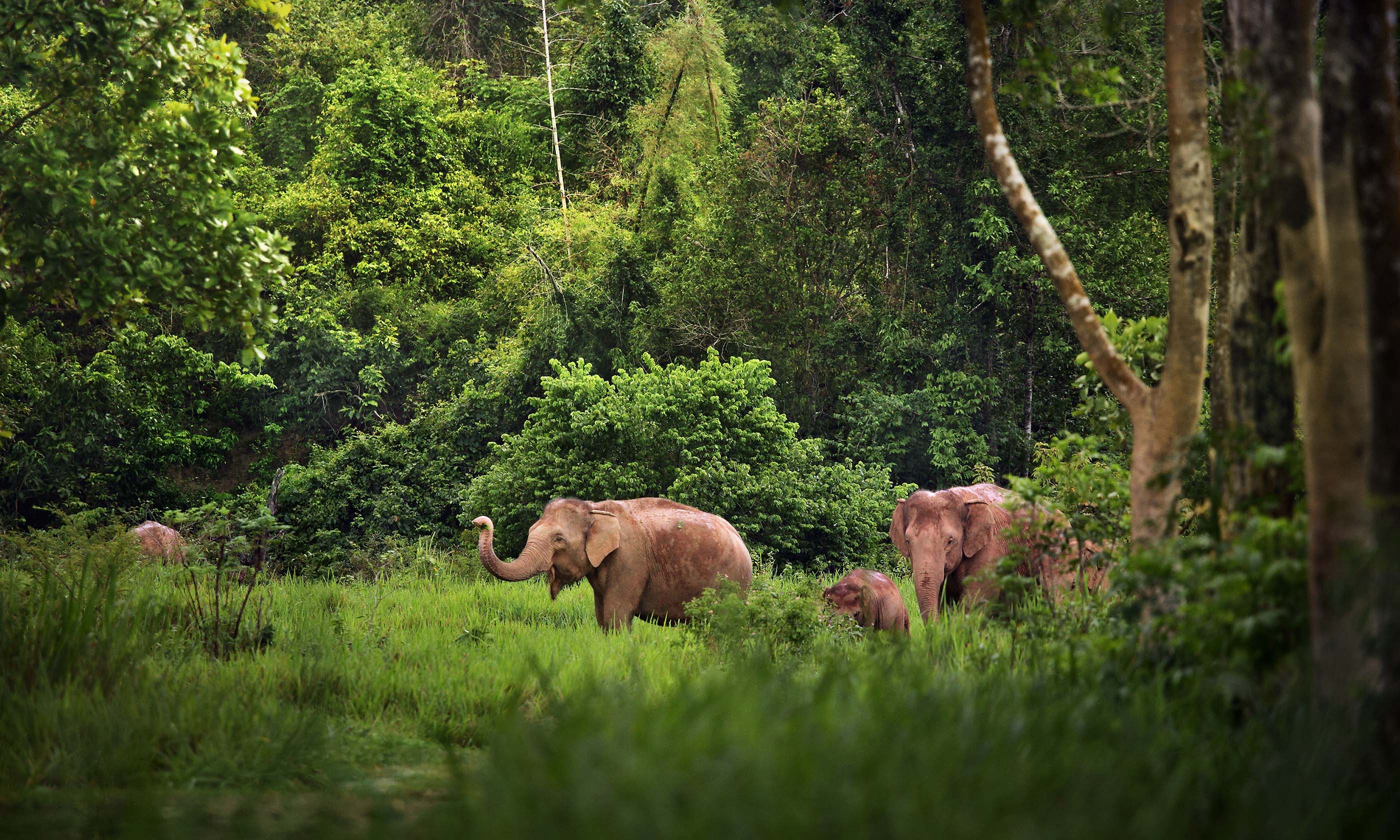
A herd of elephants enjoying the jungle (Shutterstock)
Situated in the Khao Sok National Park, Elephant Hills is home to many elephants who have been rescued from a life of captivity who are now free to roam the vast jungle area chain-free. The park is constantly working at improving the life of the gentle giants in its care and is doing such a great job it received 100% of core criteria in an audit by Global Spirit, an independent animal welfare company in the UK.
What makes Elephant Hills so special is the chance to stay at one of the site’s two glamping camps, allowing you to fully immerse yourself in the wild natural landscapes. Spend your days kayaking, visiting local markets, trekking through mangrove forests and of course, seeing and learning about the elephants in an ethical and responsible way
12. Phang Nga Elephant Park
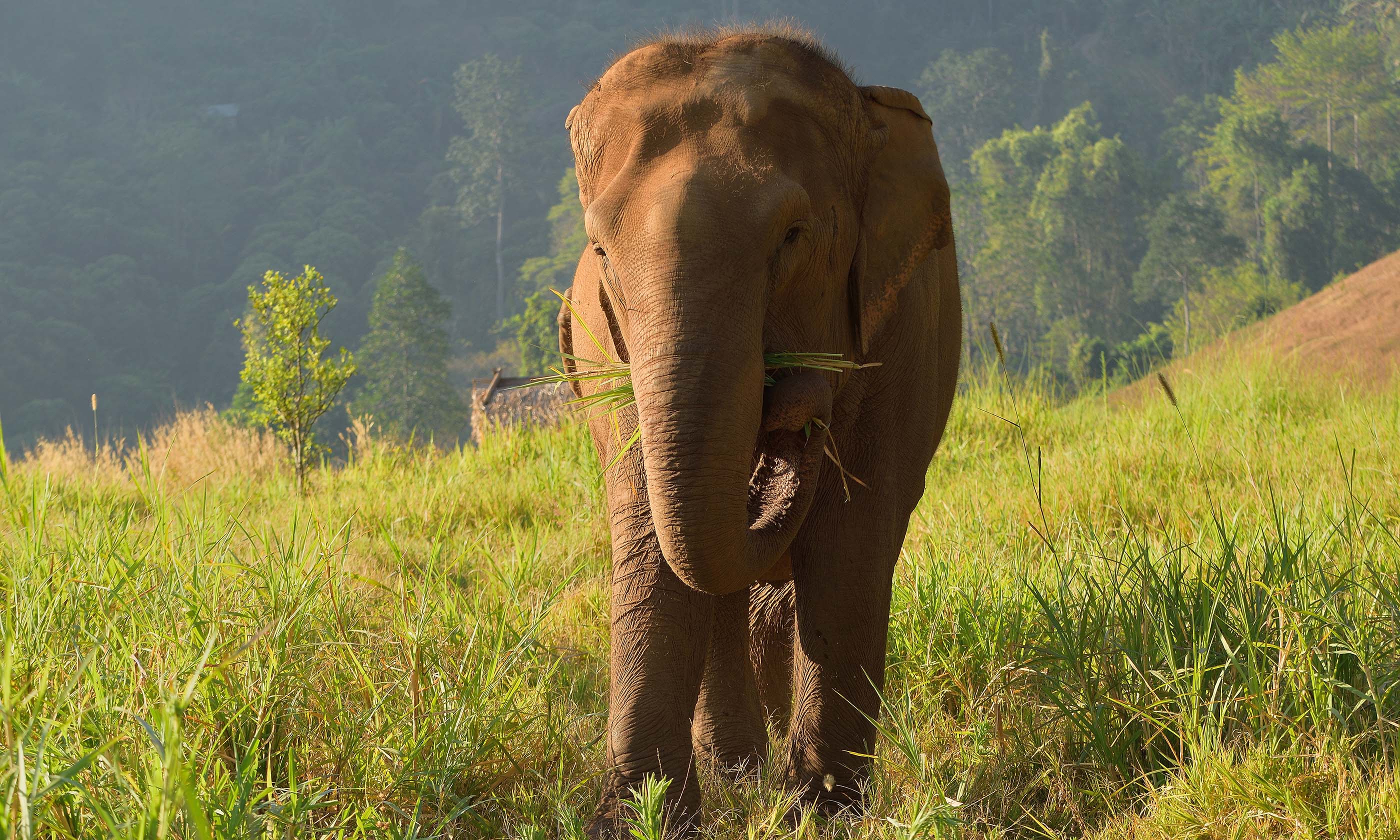
An elephant grazing on the grass (Shutterstock)
This small, family-run park in the Phang Nga Province on the edge of a nature reserve has been open since 2015, but elephants have been a part of this family’s life for over 150 years. Phang Nga Elephant Park prides itself on elephant welfare, constantly learning and improving to provide the best quality of life for the elephants as possible so you can be sure your visit here will be a sustainable one.
Spend your day in the thick forest where the elephants roam, watching them go about their daily routine and helping to plant food as part of the park’s conservation programme. Don’t miss a visit to the education centre to learn about the history of the Asian elephant and why elephant conservation is so important in Thailand
13. Into the Wild
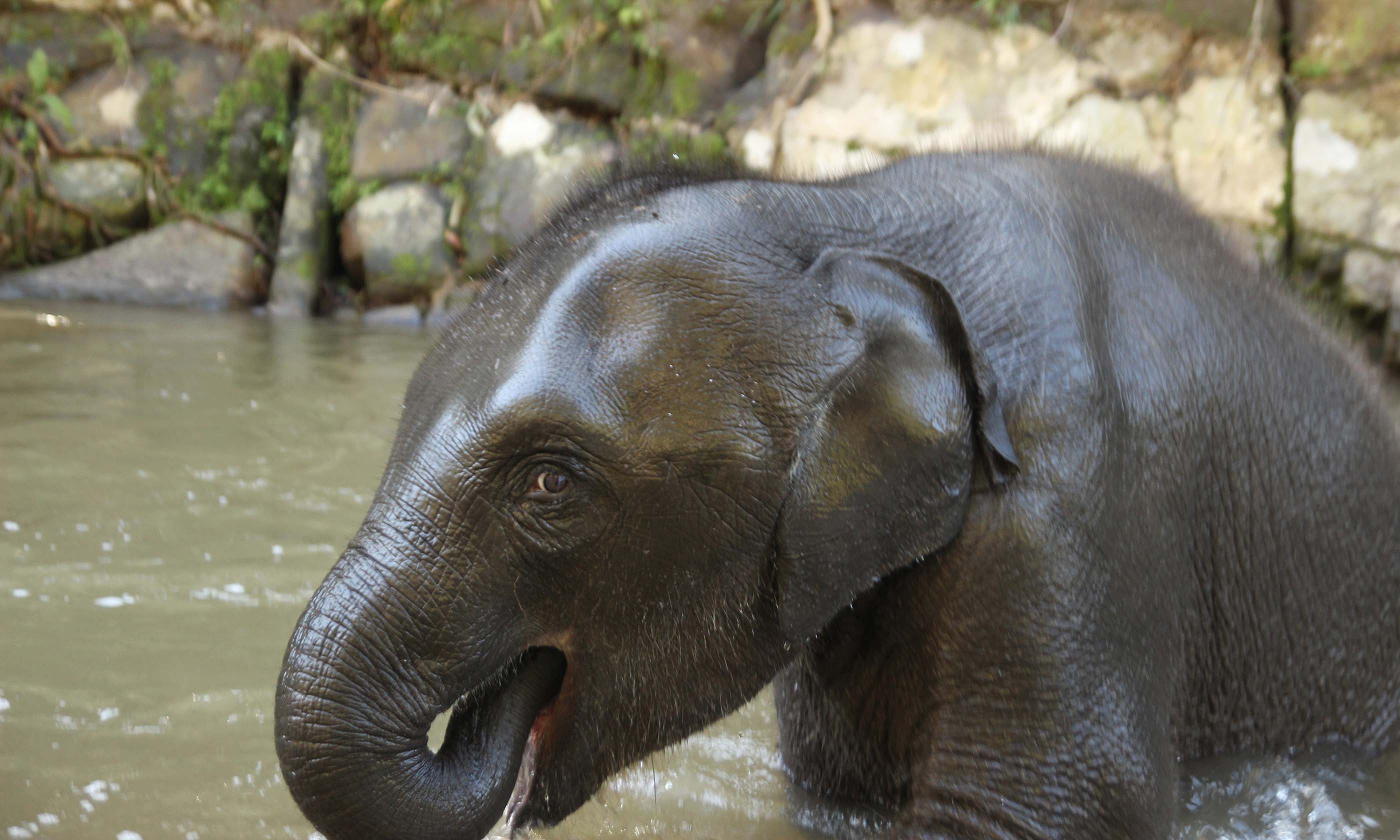
A baby elephant enjoying a bath (Shutterstock)
Situated in the southern mountains of Chiang Mai, the elephants at Into the Wild are free to roam the emerald forested landscapes and splash in the water. By taking either the half day or full day programme, you can follow them on a trek through the jungle, observing the ellies in their natural environment. You will also have a chance to learn about the behaviour, history and ethics of elephant care in Thailand.
Crucially, Chiang Mai takes elephant welfare very seriously, and does not allow riding or elephant tricks. The focus is on responsible and sustainable elephant experiences, ensuring these elephants rescued from a life of logging and tourism can live out their retirement happily and peacefully. As well as giving back to the elephants, Into the Wild also does its utmost to support their neighbours, employing people from the local Karen hill tribe and supporting the local community with supplies.
